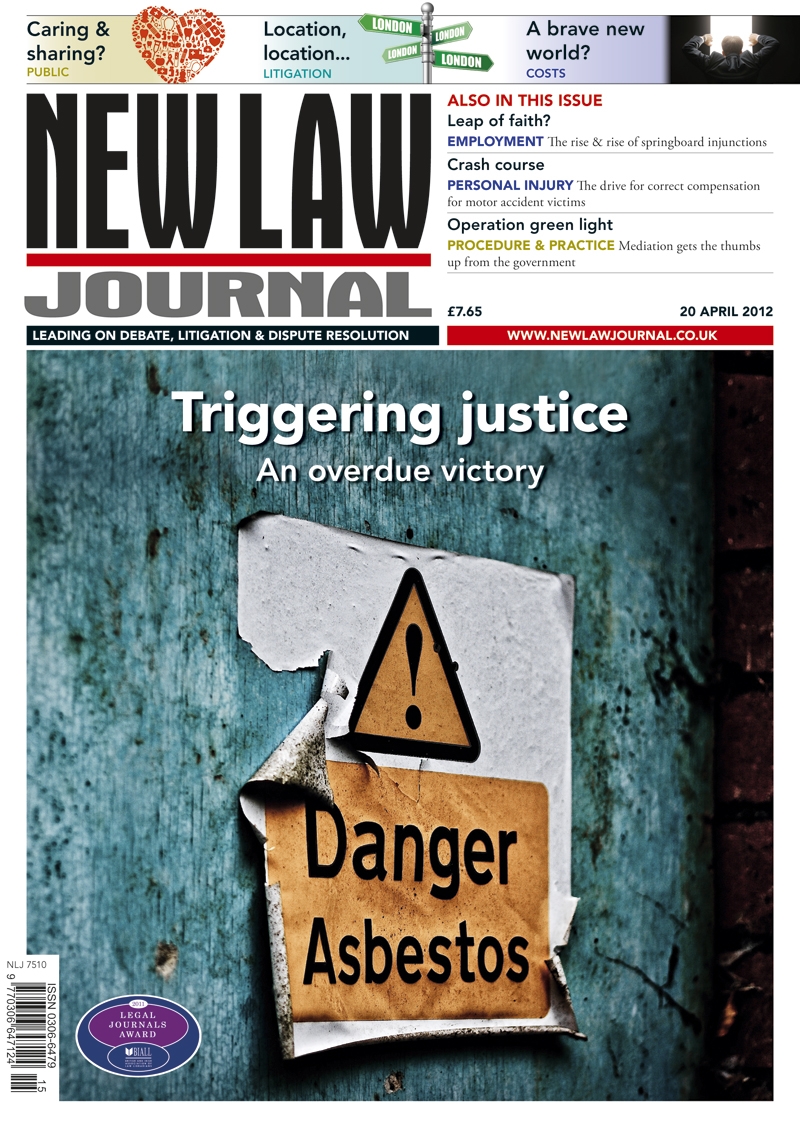
The use of springboard injunctions by employers is soaring, says Richard Owen-Thomas
Successive governments have failed to protect RTA victims. It’s time to act, says Nicholas Bevan
Will reform resolve the legal minefield of easements by prescription, asks Christopher Warenius
Tim Spencer-Lane breaks down the consultation on health care regulation
A trust should express, not obstruct, a court’s will, says Jenny Duggan
Ed Mitchell provides an update on community care law
Paul Lowenstein QC & Teniola Onabanjo detail why London has become a centre for international litigation
Iain Stark examines the changes afoot in the world of costs
In the second article in a special NLJ costs series, William Gibson revisits estimates
Dr Ann Brady welcomes the government’s mediation proposals
MOVERS & SHAKERS

NLJ Career Profile: Ken Fowlie, Stowe Family Law
Ken Fowlie, chairman of Stowe Family Law, reflects on more than 30 years in legal services after ‘falling into law’

Jackson Lees Group—Jannina Barker, Laura Beattie & Catherine McCrindle
Firm promotes senior associate and team leader as wills, trusts and probate team expands

Asserson—Michael Francos-Downs
Manchester real estate finance practice welcomes legal director







